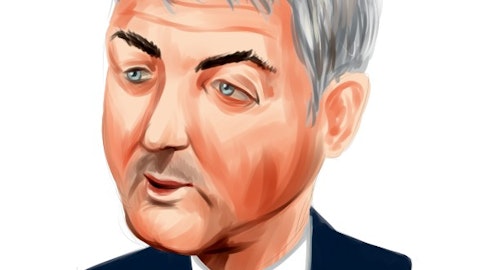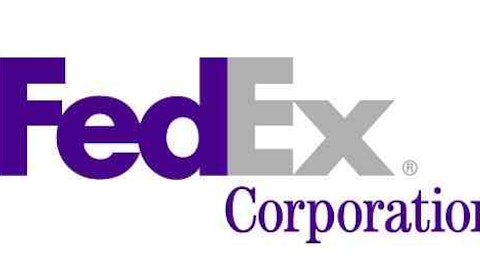
Does FedEx fit with Bill Ackman’s criteria?
Bill Ackman wrote that his fund, Pershing Square Capital Management, planned to invest as much as $1 billion in a large cap, investment-grade U.S. company, but he did not reveal the name yet. This business seems to have a wide moat, as its business is “simple, predictable, and free cash flow generative, and enjoys high barriers to entry, high customer switching costs and substantial pricing power.” However, several analysts argued that FedEx Corporation (NYSE:FDX) did not fit with Ackman’s criteria, as they thought it was not a simple business, it was not predictable, and it did not generate free cash flow.
In the past ten years, FedEx Corporation (NYSE:FDX) has consistently generated positive but fluctuating operating cash flow. Its free cash flow increased from $1.87 billion in 2003 to more than $4.83 billion in 2012. However, it has only consistently generated free cash flow since 2008. In the past twelve months, its operating cash flow was nearly $4.8 billion, while the free cash flow came in at $1.3 billion. The company also employed a reasonable amount of leverage in its operations. As of Feb. 2013 it had $16.1 billion in equity, $3.37 billion in cash and more than $2.24 billion in both long and short-term debt. FedEx Corporation (NYSE:FDX) also recorded more than $5.3 billion in pensions and other benefit obligations.
With the assumption of current fuel price outlook and $4 billion in capital expenditure, the company expected that it could experience a 7%-13% growth in its adjusted EPS. According to the company’s CFO, Alan Graf Jr., customers turn to lower-rate international services, driving down the pricing in the current market. Consequently, the company would decrease its capacity in two regions–the U.S. and Asia. At $103.10 per share, FedEx is worth nearly $32.9 billion on the market. The market values FedEx Corporation (NYSE:FDX) at around 5.6 times its trailing EBITDA. Its dividend yield is quite small, at only 0.6%.
The cheapest among its peers
FedEx Corporation (NYSE:FDX) has the cheapest valuation among its peers, including Deutsche Post and United Parcel Service, Inc. (NYSE:UPS). Deutsche Post is trading at $26.30 per share, with the total market cap of $31.80 billion. The market values Deutsche Post at a much higher valuation, at 9.2 times its trailing EBITDA. The company has experienced good growth in several businesses, such as Express TDI, Forwarding/Freight, Supply Chain and Parcel Germany. Deutsche Post has grown its EBIT by nearly 3% to around $908 million, thanks to DHL Express business improvement. Deutsche Post expected that it could deliver as much as $3.55 billion to $3.88 billion in the full year EBIT. Deutsche Post would focus its efforts on improving its margin and generate more cash flow. The company also estimated that it could generate enough free cash flow to at least cover the 2012 dividend.




